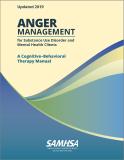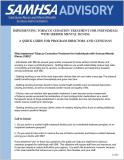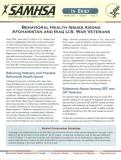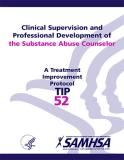
This Advisory highlights how mental and substance use disorder treatment programs can better serve people with physical and cognitive disabilities and substance use disorders (SUDs) and/or serious mental illness (SMI).
Units per Product
Download
Advisory: Mental and Substance Use Disorder Treatment for People With Physical and Cognitive Disabilities
File Type: PDF
File Size: 609 KB







